Author: text by albert and images by daniel
Created: 11/21/2023 | Updated: 11/22/2023
Status: updated | 4 min read
What is a Theory of Mind
Theory of mind (ToM) is the ability to understand that others have beliefs, desires, intentions, and perspectives different from one’s own.
It’s a fundamental aspect of human cognition and social interaction, allowing individuals to comprehend and predict the behaviors of others based on their mental states.
Key components of theory of mind include:
Theory of mind is essential for successful social interactions, empathy, and understanding others’ perspectives. It plays a crucial role in communication, cooperation, and the development of complex social relationships.
Deficits in theory of mind are often associated with certain neuro-mental disorders, such as autism spectrum disorders, where individuals may struggle to understand or predict the thoughts and feelings of others.
Contents
Why a ToM is so important
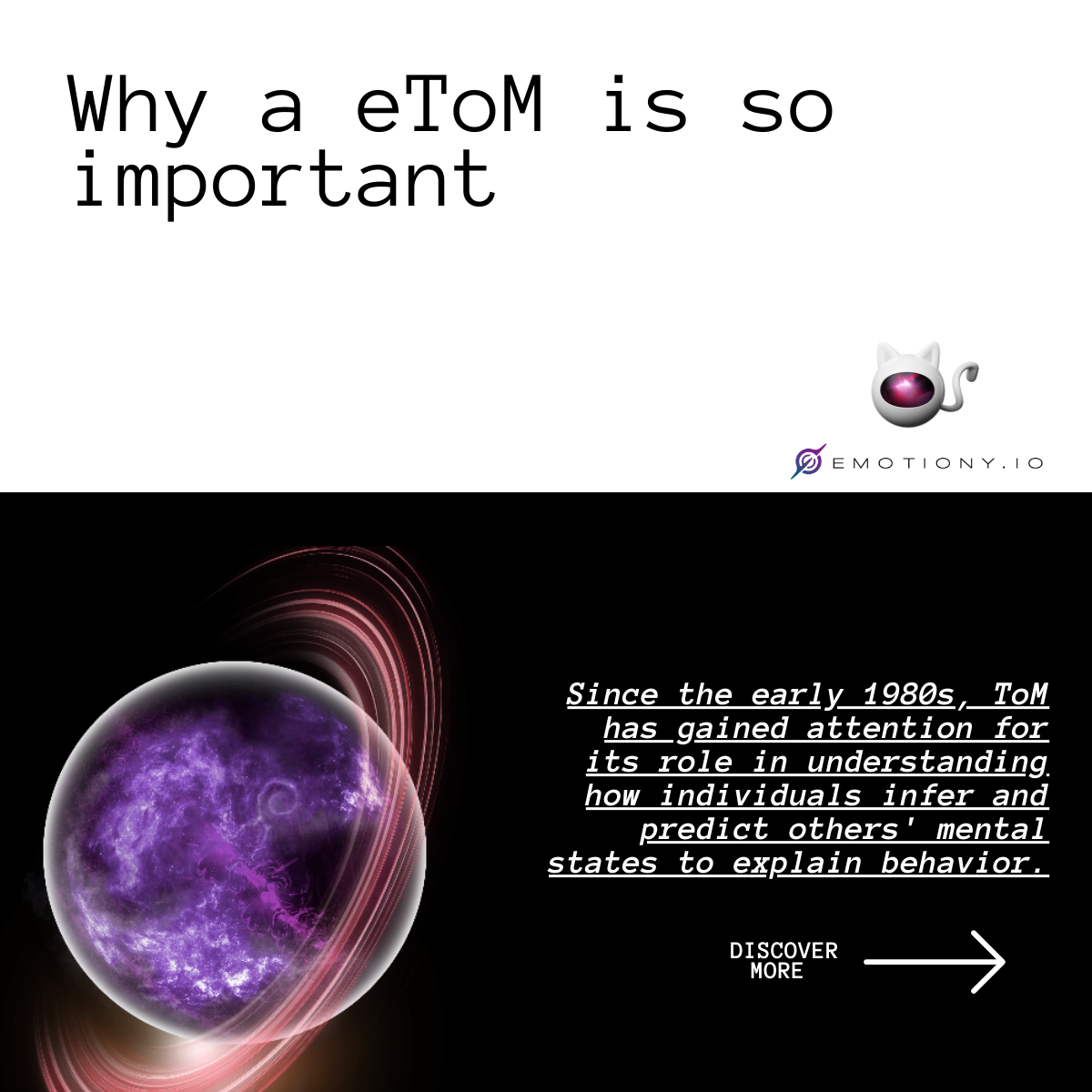 Why a ToM is so important
Why a ToM is so important
Since the early 1980s, there has been a surge of interest in the cognitive basis of a barely known theory of mind, from now ToM.
According to our common sense, people act, make decisions and solve problems because they have mental states of various kinds, for example, intentions, desires, beliefs, hopes, intuitions, emotions, emotional trauma, memes, etc.
ToM describes the ability to infer and understand another’s mental state (the beliefs, thoughts, intentions, feelings or emotions, moral intuitions, memes, and emotional trauma of another), and use this information to explain and predict human behaviour or at least, have a clue of Why people make decisions in that particular way.
A brief introduction to emotiony theory of mind etom
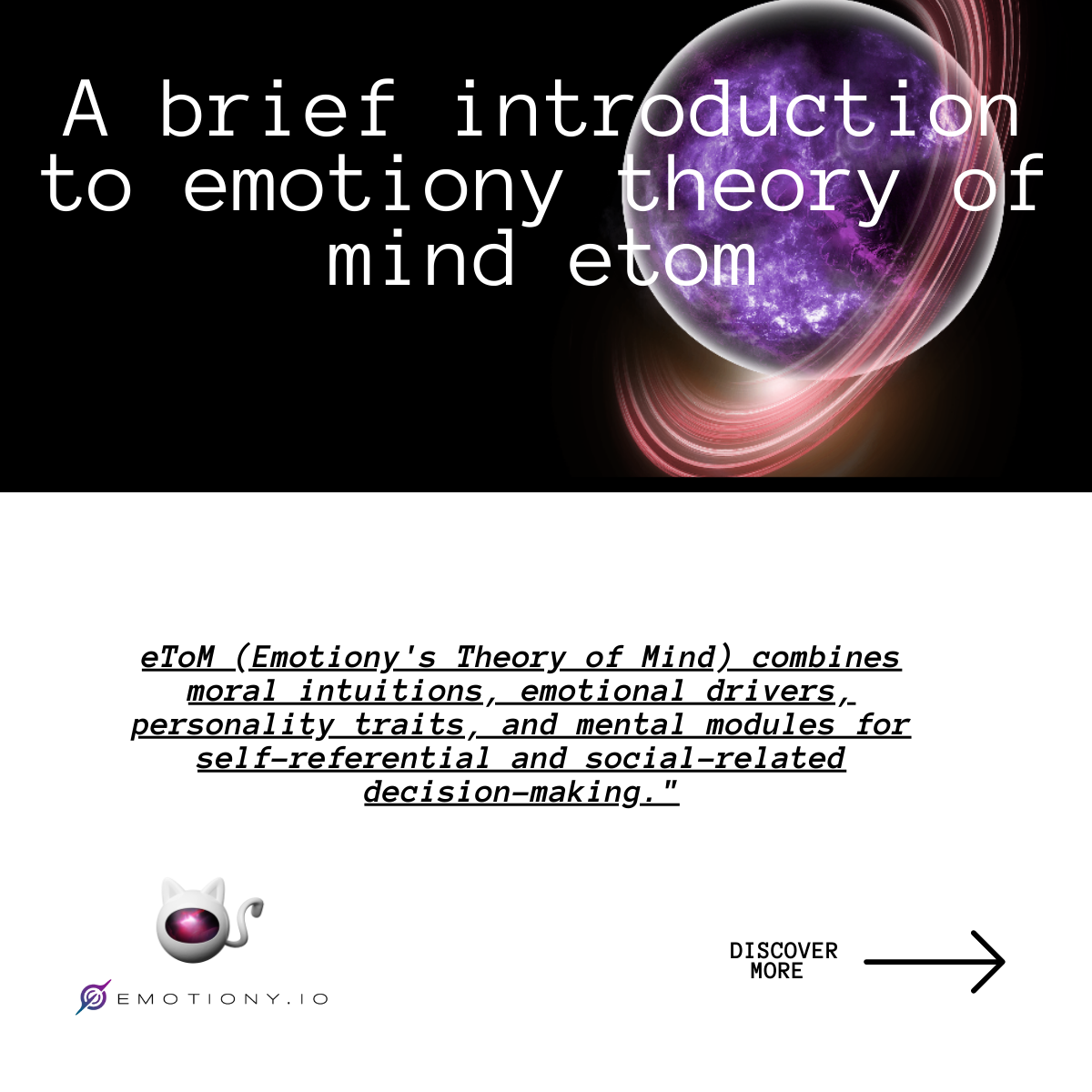 A brief introduction to emotiony theory of mind etom
A brief introduction to emotiony theory of mind etom
Automatic intuitions and deliberate reasoning, sourcing internal representations of our norms and values (moral intuitions), contribute to our beliefs of what is right and wrong, and that is the basis of emotiony’s ToM, from now eToM.
As Renate L E P Reniers notes:
“We suggest that moral decision-making entails a greater degree of internally directed processing, such as self-referential mental processing and the representation of intentions and feelings, than non-moral decision-making.”
 etom 1.1
etom 1.1
So, besides moral intuitions, eToM adds past emotions and build structure of personality to define four keys-processes:
They are self-referential (as a main characteristic) and social-related (as context where they operate) mental modules. As a fundamental part of the decision-making pipeline they mix constantly.
Why emotions play a key-role
“Pain, anger, and frustration will let us know when it’s time to inquire. We either believe what we think or we question it: there’s no other choice. Questioning our thoughts is the kinder way. Inquiry always leaves us as more loving human beings.”
Emotions are a key element in the Theory of Mind (ToM) due to their impact on various aspects of human interaction and understanding.
Here are three key points on why emotions are crucial in ToM:
Interpreting Emotional Signals: ToM involves the ability to interpret emotional signals in others. Emotions are like a language that conveys important information about a person’s mental state. Recognizing and understanding emotional expressions, such as happiness, sadness, anger, or fear, is essential for inferring what someone might be thinking or feeling.
Influence on Decision-Making: Emotions have a profound influence on decision-making. ToM helps individuals understand how emotions can shape the choices people make. By considering the emotional states of others, individuals can gain insights into their motivations and decision-making processes, allowing them to anticipate and respond effectively.
Complex Social Interactions Building: Emotions are central to complex social interactions. ToM enables individuals to navigate the intricate emotional landscapes of social situations. This includes recognizing hidden emotions, understanding sarcasm, and deciphering mixed emotions. Emotions provide the context for deciphering the subtleties of human behavior and interaction.
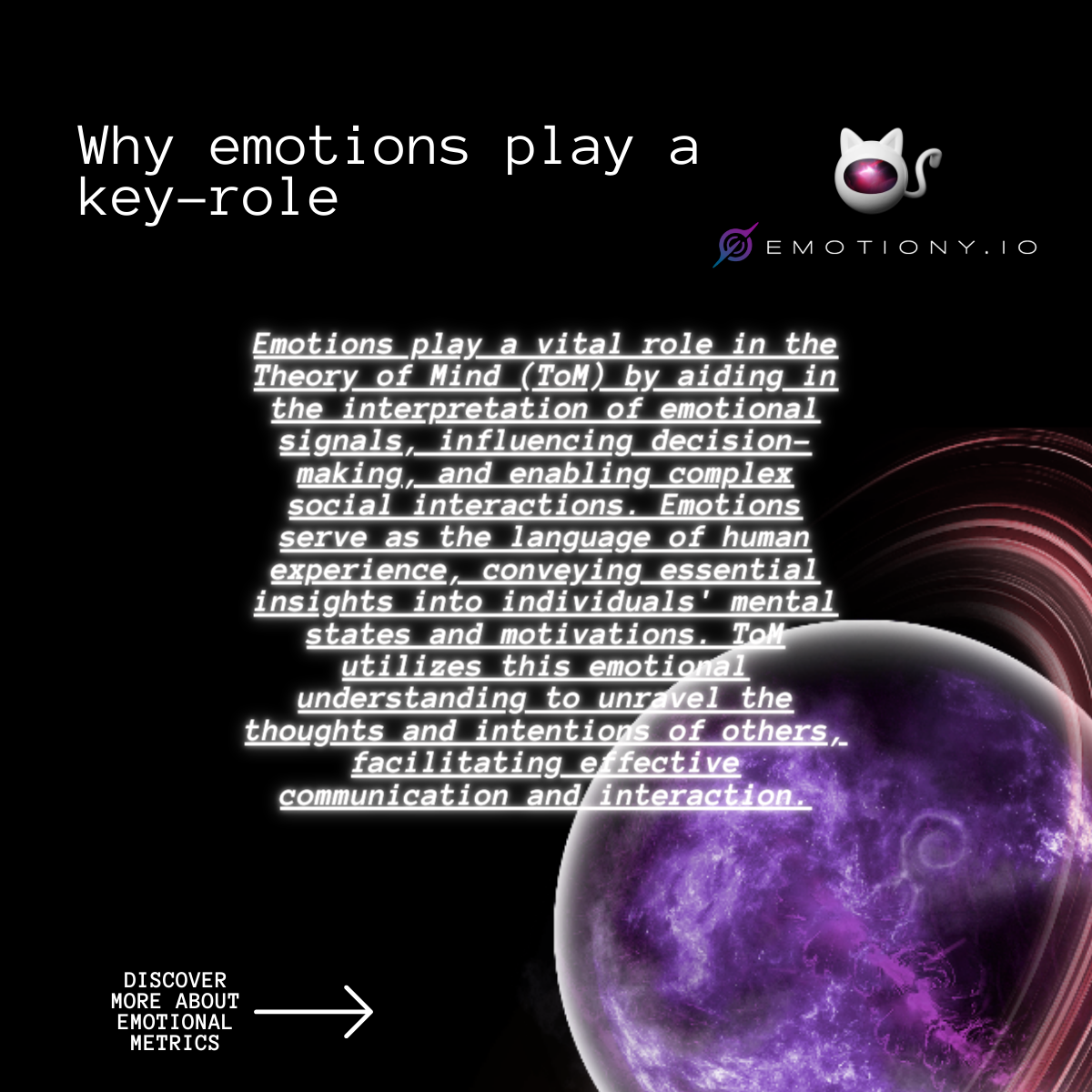 Why emotions play a key-role
Why emotions play a key-role
In essence, emotions are the building blocks of human interaction and behavior. They provide the context and motivation for our actions. ToM leverages this understanding of emotions to decode the intentions and thoughts of others, facilitating effective social interaction and communication.
Why etom is focused on emotions
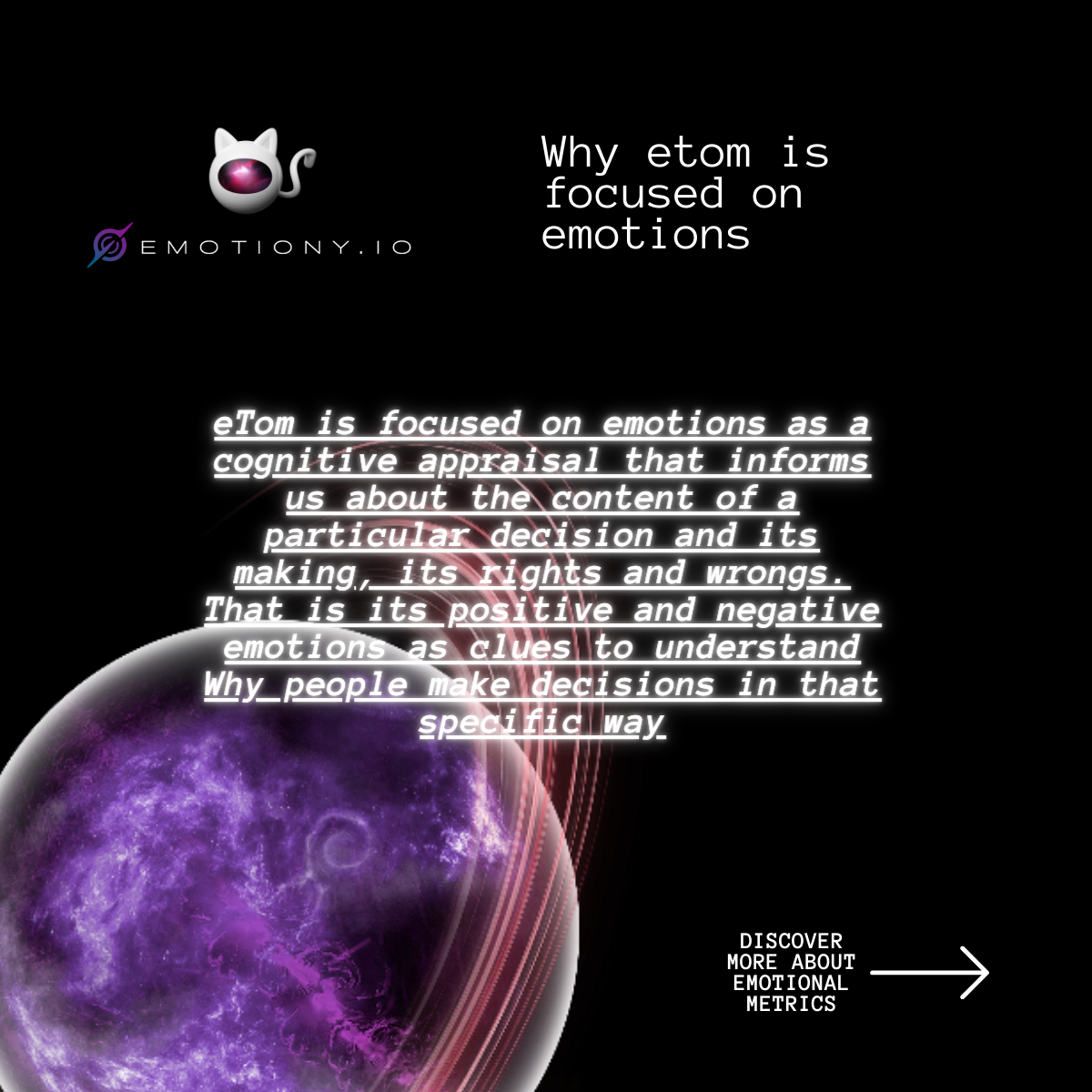 Why-emotions-play-a-key-role
Why-emotions-play-a-key-role
Emotions are cognitive appraisals and bodily perceptions, performed simultaneously by interacting brain areas.
 etom 1.1
etom 1.1
eTom is focused on emotions as a cognitive appraisal that informs us about the content of a particular decision and its making, its rights and wrongs. That is its positive and negative emotions as clues to understand Why people make decisions in that specific way.
Final Thoughts
Theory of Mind (ToM) is a fundamental cognitive skill that allows individuals to understand and predict others’ behaviors based on their mental states, such as beliefs, desires, and emotions; deficits in ToM are associated with certain neurodevelopmental disorders.
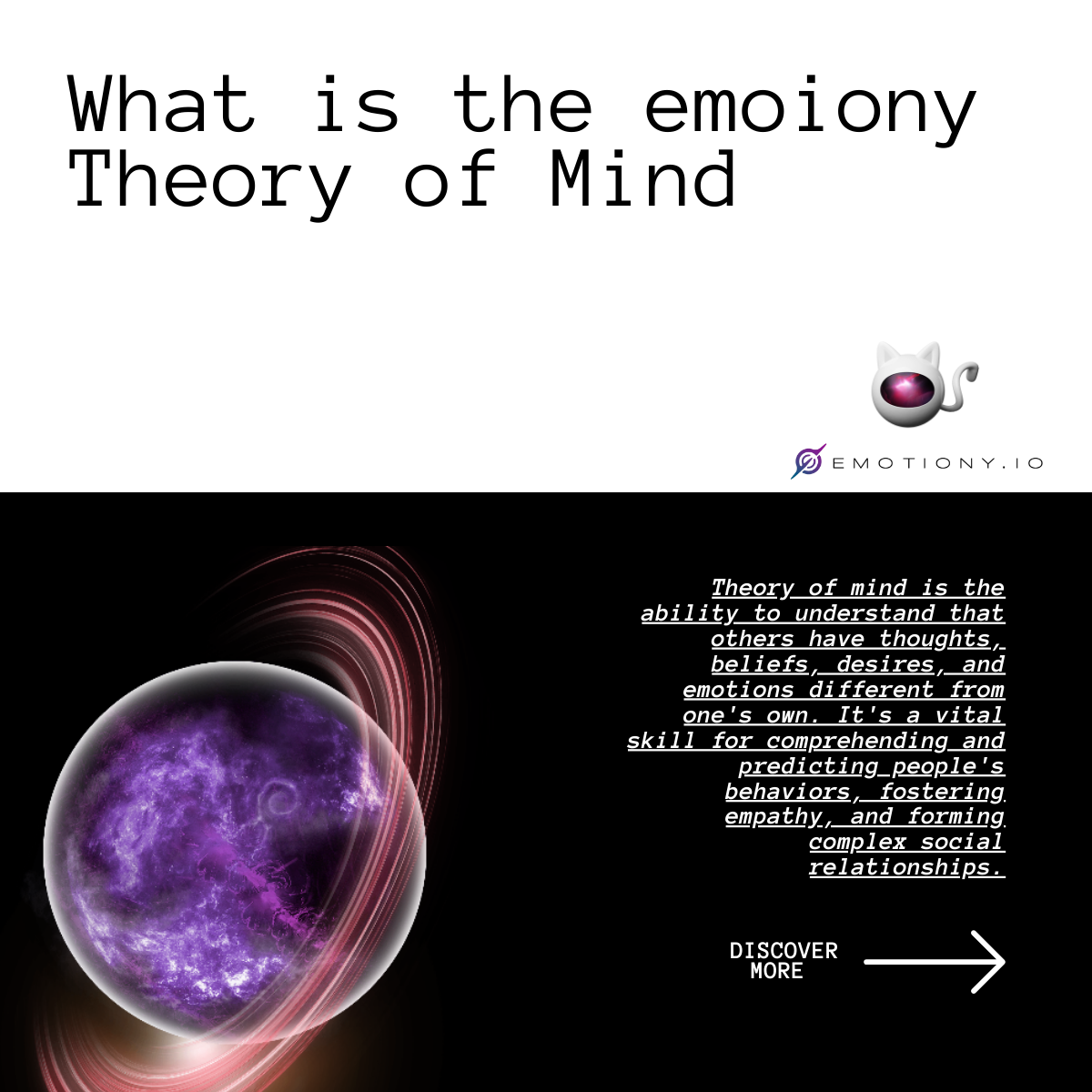 What is a Theory of Mind
What is a Theory of Mind
Emotions play a central role in ToM, aiding in interpreting emotional signals, influencing decision-making, and facilitating complex social interactions. Such as, eTom, emotiony Theory of Mind, serves as the language of human experience, conveying insights into individuals’ mental states and motivations, ultimately enhancing our understanding of human behavior and interaction.
 Djokovic's Secret Emotions and Champion's Mental Breakthrough
Djokovic's Secret Emotions and Champion's Mental Breakthrough
 How emotiony help you to deal with stress
How emotiony help you to deal with stress